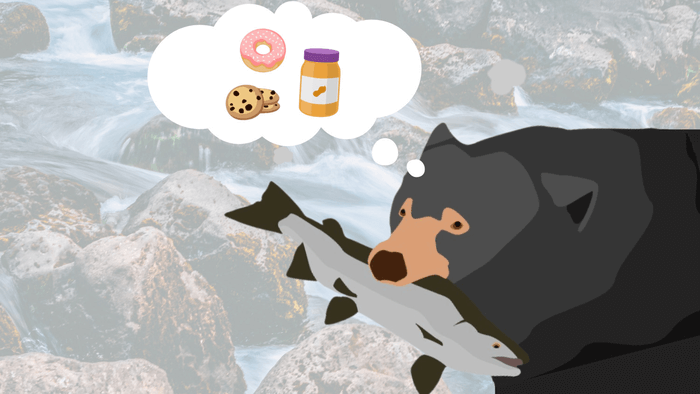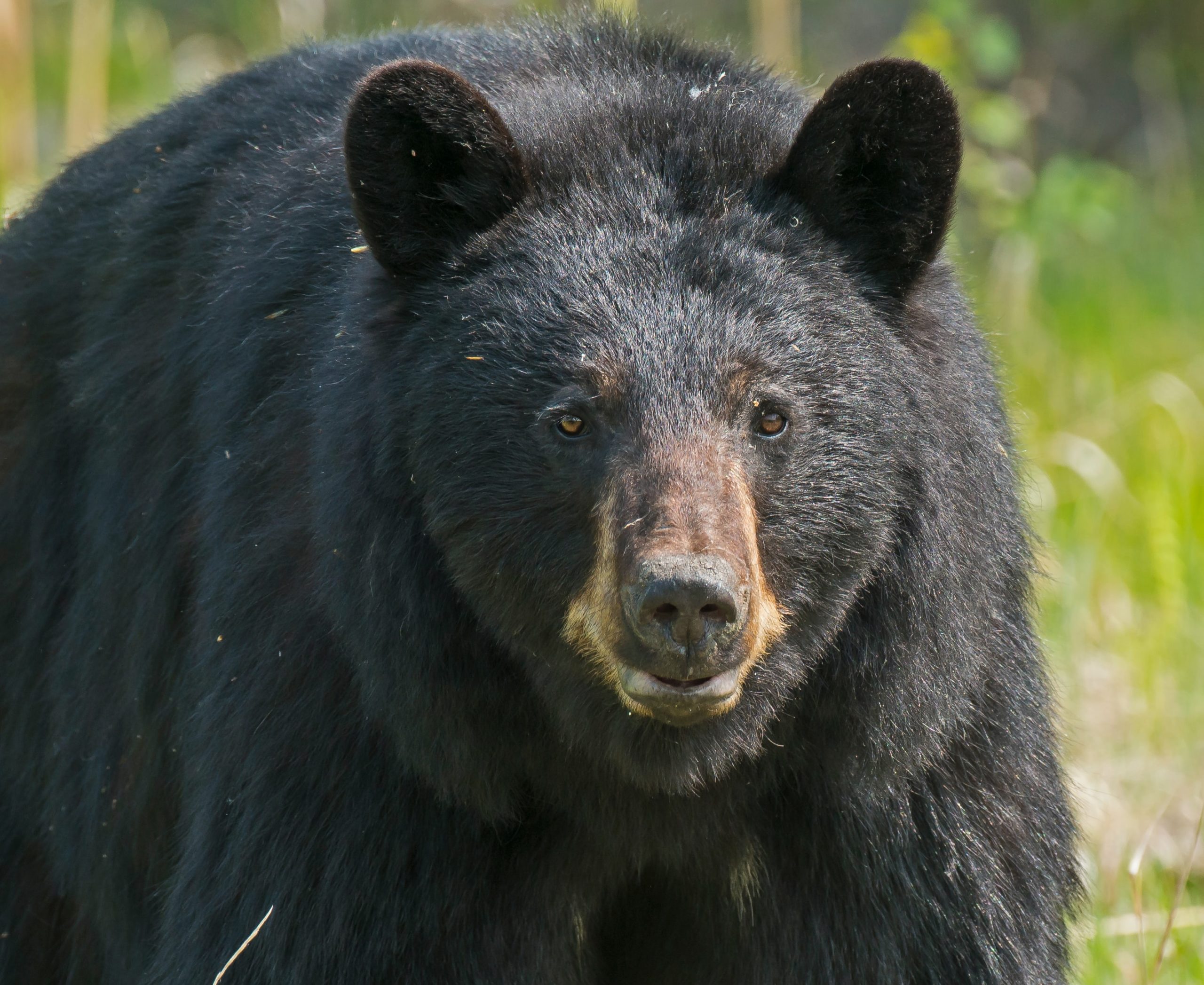Various studies have shown how the ecosystem of beneficial gut microbes changes with diet. Foods rich in pro- and prebiotics help to maintain a healthy, diverse microbiome, while processed foods often lead to an overpopulation of harmful gut microbes. Previous research shows the effect of diet on human and mouse gut flora. Similarly, the microbiota of black bears is significantly altered by consuming processed foods, according to new research.
“We know a ‘western’ diet can reduce microbial diversity in the guts of humans, mice, and other species, which can have an adverse effect on their health,” says co-author Erin McKenney, in a statement. McKenney is an assistant professor of applied ecology at NC State.
“We want to know if the same is true for wildlife, particularly given the increasing overlap between where people live and where wildlife lives. One possibility our work here raises is that if wildlife begin consuming human foods, it may affect their ability to derive as much nutrition from their traditional, wild diet if they stop eating human foods,” McKenney adds.
“In this particular study, we wanted to know how human foods influence the gut microbiome of black bears,” says first author, Sierra Gillman, a Ph.D. student at the University of Washington. Specifically, the researchers studied the microbiomes of bears across Michigan, where it is legal to “bait” them with candies and cereal packed with sugar. In order to attract the bears to a given region, hunters may continuously place the sweets in specific locations over a long period of time. These bears develop poor gut ecosystems by feasting on processed foods.

As part of their study, the scientists collaborated with guides from the Upper Peninsula of Michigan who run organized excursions for hunters. During each hunting trip, the guides took hair and fecal samples from 35 bears that had been killed. The guides gathered fecal samples from a specific region in the small intestine called the jejunum, as well as near the colon.
Researchers examined the samples to determine the type of microorganisms present and their abundance. For the long-term diet investigation, the scientists analyzed carbon isotopes in the hair samples. This gave them an estimate of how much sugar and corn each bear had eaten.
Two indicators of gut biodiversity were examined by the researchers throughout the data analysis process. They begin by counting the overall number of microbes in each of the samples. Next, they referred to a statistic called Faith’s phylogenetic diversity, which assesses the number of distinct species in each sample. “Basically, Faith’s phylogenetic diversity assesses how many branches of the bacterial family tree are represented,” Gillman explains.
Following the study’s findings, the overall number of microorganisms present as well as the number of unique species was much lower in bears that had consumed more processed meals.“Essentially, we found that the more human food black bears eat, and the longer they eat it, the less diverse their gut microbiomes,” Gillman adds.
McKenney says that sugar is easily absorbed by the body, and many bacteria are able to digest it. For the microbiome, sugary, processed foods provide less sustenance for microorganisms that specialize in the digestion of fiber and other nutrients. “Those bacterial specialists have trouble competing with the other bacteria for sugar, and their niche in the food web isn’t sustainable if bears don’t eat enough of their traditional diet. We think that’s one of the mechanisms for reducing gut microdiversity,” explains McKenney.
“Now that we’ve identified this association between eating human food and microbial biodiversity, we need to do additional work to determine what this means for the health of these animals – and potentially other animals,” adds Gillman.
From the field cameras used to track the bears, hunters have reported also seeing other animals such as rabbits, raccoons, and deer feasting on the sugary bear bait. “It’s not clear how baiting might be affecting the microbiomes or health of other wildlife that is taking advantage of the free food. As we think about conservation, assessing the impact of our activities on diversity may need to extend to protecting microbial diversity,” says co-author Diana Lafferty, who is also an assistant professor of wildlife ecology at NMU.
“The evidence increasingly suggests that many of these microbial organisms are critical to the health of wildlife species. How does baiting fit into that? Those are issues I think we’ll need to explore.”
This study is published in Mammalogy.
